Counter Terrorism Policing (CTP) and the UK Intelligence Services have foiled three terror attacks since the Covid-19 pandemic began, despite lockdowns causing terrorism-related arrests to fall to their lowest level in nearly a decade.
The Home Office’s quarterly release of statistics relating to the police’s use of powers under the Terrorism Act 2000 revealed there were a total of 185 arrests for terrorism-related activity in the year ending 31 December 2020, 97 (34%) fewer than in the previous 12-month period and the lowest annual total since 2011.
But despite the reduction in the number of arrests, which is largely due to an overall reduction in crime since the beginning of the national lockdown in March last year, the number of terror plots stopped by CTP and their intelligence partners has risen to a total of 28 since March 2017.
The Senior National Coordinator for Counter Terrorism Policing, Deputy Assistant Commissioner Dean Haydon, said: “These statistics tell me two things. Firstly, that despite facing unprecedented challenges brought about by the pandemic, Counter Terrorism Policing continued to keep the public safe by making 185 arrests across more than 800 live investigations – stopping three possible terror attacks in the process.
“And secondly, that while the rest of us have been focussed on protecting ourselves and our families from this terrible disease, terrorists have not stopped planning attacks or radicalising vulnerable people online.
“As we follow the Government’s roadmap out of the tightest restrictions there will be greater opportunity for terrorists to operate, and we want the public to join the police, security staff and retail workers in a collective community effort to minimise the chance of attack.
“When we say that ‘Communities defeat terrorism’ it is not just a catchphrase. We know from experience that public information and action helps saves lives and lead to the significant arrests detailed in these statistics.
“I would urge everyone to remain vigilant and ACT if you see anything suspicious by reporting it to us confidentially via gov.uk/ACT or by calling 0800 789 321. In an emergency, always dial 999.”
To learn more about the role that you can play in defeating terrorism, free online training is available at https://www.gov.uk/government/news/act-awareness-elearning.
Taking just 45 minutes to complete, the online training provides the latest advice from CT experts, including how to react in the unlikely event of a terror attack and how to spot and report suspicious activity and behaviour.
SNC Dean Haydon also warned that a worrying trend was developing in the arrest statistics, with
children under the age of 18 the only age category which saw an increase – rising from 11 to 17 in total.
That is a total of 10% of all arrests, which has risen from just 4% in the previous 12months.
“Unfortunately we are seeing increasing numbers of young people arrested in relation to terrorism,” added DAC Haydon.
“But it doesn’t have to be this way. Ideally we would identify when a young person is being led down the path towards terrorism activity and use the Prevent programme to try and put them on a different path.
“Our research tells us that parents, family members and friends are the first to see the changes in behaviour which might indicate that a loved one is being radicalised. But currently just 2% of people we help through Prevent come to the programme because of concerns raised by those same people who know them best.
“That is why we recently launched a new website and helpline – www.actearly.uk – designed specifically to offer advice and support for parents and family members who think their loved one might be following a dangerous path towards extremism.
“Asking for help is a difficult and emotional step, but we must see it for what it is – action which won’t ruin their lives but may well save them.”
If you are worried that someone you know is being radicalised, visit www.actearly.uk
For help and advice visit www.actearly.uk, or call the national Police Prevent Advice Line on 0800 011 3764, in confidence, and our specially trained Prevent officers will listen carefully to your concerns.

